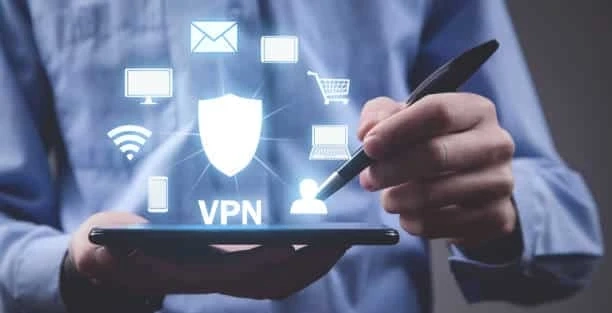VPN stands for virtual private network. It\'s a tool that is used to protect your online activity from prying eyes, and this includes financial transactions. In this article, we\'ll discuss how a VPN can help you protect your financial transactions online.
- Encryption
A VPN uses encryption to secure your online activity. Encryption is a process where your data is converted into a code that can only be read by authorized parties. When you use a VPN, your data is encrypted before it leaves your device, making it unreadable to anyone who tries to intercept it.
In the case of financial transactions, encryption ensures that your sensitive information is protected from cybercriminals who may try to steal your information. Your credit card number, bank details, and personal information will be safe from prying eyes.
- Anonymity
A VPN provides you with anonymity when you\'re online. It masks your IP address, which is your online identity, making it difficult for anyone to track your online activity. This is important when it comes to financial transactions because cybercriminals may try to track your online activity to find out more about your financial information.
With a VPN, your online activity is hidden, making it difficult for cybercriminals to track you. This protects your financial transactions from unauthorized access.
- Access to Restricted Websites
Some financial institutions restrict access to their websites to specific regions or countries. If you\'re traveling or living in a different country, you may not be able to access your financial institution\'s website. A VPN can help you access restricted websites by changing your IP address to one that is allowed by the financial institution.
With a VPN, you can access your financial institution\'s website from anywhere in the world. This makes it easy for you to manage your financial transactions without worrying about access restrictions.
- Public Wi-Fi Protection
Public Wi-Fi networks are notorious for being vulnerable to cyber attacks. Cybercriminals can use public Wi-Fi networks to intercept data that\'s being transmitted over the network. This makes it easy for them to steal your financial information.
When you use a VPN on a public Wi-Fi network, your data is encrypted and your IP address is hidden. This protects your financial transactions from cybercriminals who may be lurking on the public Wi-Fi network.
- Secure Servers
When you use a VPN, your data is transmitted through a secure server. This server acts as a middleman between your device and the internet. The secure server is responsible for encrypting your data, masking your IP address, and transmitting your data to the website or service you\'re accessing.
With a VPN, your data is transmitted through a secure server that\'s designed to protect your online activity. This protects your financial transactions from cyber attacks and unauthorized access.
A VPN is an essential tool for protecting your online financial transactions. It provides you with encryption, anonymity, access to restricted websites, public Wi-Fi protection, and secure servers. With a VPN, you can rest assured that your financial information is protected from cybercriminals who may be trying to steal it.
VPN Guider is committed to providing unbiased and transparent information about VPN services. Its reviews and comparisons are based on thorough research and testing, and its editorial content is independent of any VPN providers.




